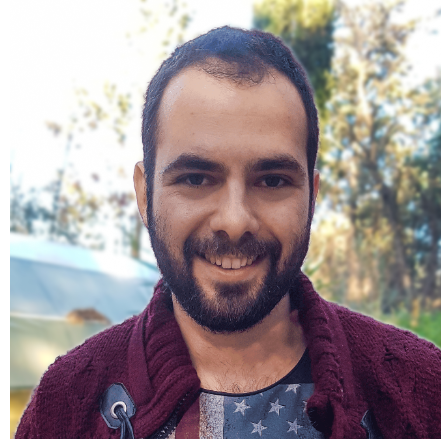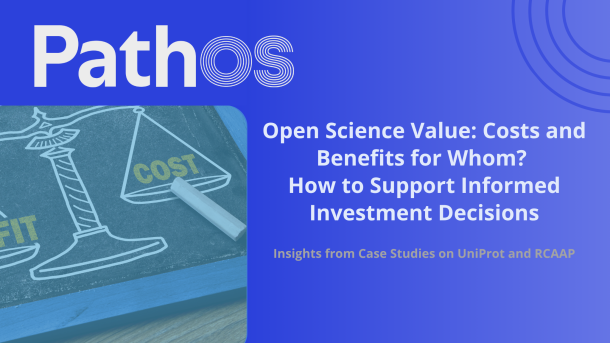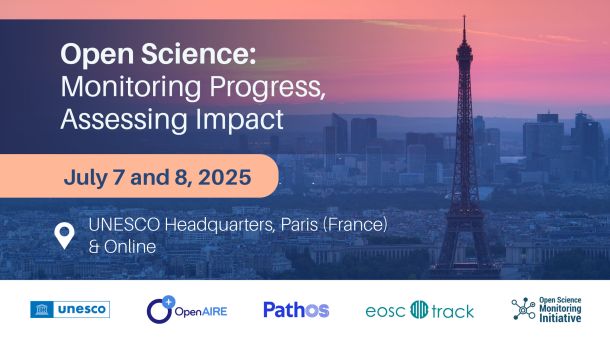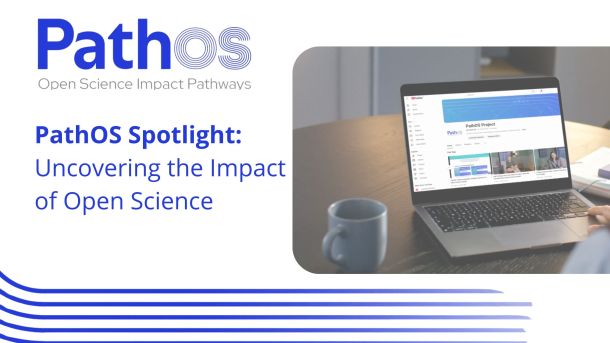Exploring Open Science practices as catalysts during the COVID-19 pandemic

Introduction
The COVID-19 pandemic has presented a significant challenge to global society, necessitating rapid advancements in research and the creation of effective treatments and vaccines. Open Science, which fosters transparency, accessibility, reproducibility, and collaboration among researchers, has the potential to expedite scientific progress while enhancing public trust in the scientific process and its results. The PathOS project aims to investigate and measure the influence of Open Science on hastening COVID-19-related scientific breakthroughs and evaluate the subsequent benefits to society.
Why was this particular study selected and how does it contribute to the testing and operationalization of Open Science indicators?
The severity of COVID-19 has placed Open Science practices in the spotlight, as it could potentially accelerate the research and development of treatments and vaccines. This study aims to quantify the effects of Open Science on the speed and scientific impact of developments for COVID-19, as well as the increase of collaborations between researchers. These indicators can be then used to evaluate the efficacy of Open Science practices and inform policy decisions on their implementation.
Why do you think this is study is important for the broader Open Science context?
This study provides insights on the benefits of Open Science practices during a global crisis. Its results can perhaps serve as proof of concept for the benefits of Open Science and the efficacy of its different instruments, e.g., various routes to open access for publications – green, gold, etc.- and different FAIR aspects. The COVID-19 situation is exceptional in terms of both its worldwide scale and urgency, and the scientific community's commitment to Open Science. While this case study is designed to offer tangible insights specific to this context, it is anticipated that it will reveal aspects of impact pathways that can be applied in other scenarios as well. Additionally, this study can serve as a guide for policy makers and other stakeholders to better understand the potential of Open Science to address global challenges.
How will this study contribute to the main aims of the project?
This investigation will contribute significantly to the primary objectives of the project by assessing and evaluating the influence of Open Science on COVID-19 research, as well as the broader implications for society during a global health emergency. Furthermore, the case study will generate data, methods and indicators to identify the most successful routes for achieving the desired results and consequences. Like all case studies within the project, there will be a reciprocal connection between the project's progress and a chosen group of experts participating in the COVID-19 focus group. This expert-in-the-loop approach aims to promote and organize inclusive engagement from all relevant stakeholders.
What kind of impact is expected to be generated by the results/outcomes of the study for different stakeholder groups?
The anticipated effects of this research are multifaceted and are expected to benefit various stakeholders. Firstly, the findings will offer valuable insights to funding organizations regarding the impact of their investment in projects related to COVID-19. Researchers, on the other hand, will gain an understanding of how effectively their work is being utilized. Moreover, this study is designed to furnish government bodies with the scientific evidence needed for informed policy-making and decision-making processes. Finally, the general public stands to benefit as well, as the study will demonstrate the role of public funding in COVID-19 response efforts, fostering greater trust in the development of the COVID-19 vaccine through transparency in scientific endeavors.
What are some of the biggest challenges you foresee in measuring the influence of Open Science on COVID-19-related scientific breakthroughs, and how do you plan to address them?
The biggest challenge in measuring the influence of Open Science on COVID-19-related scientific breakthroughs is identifying causality. To address this, we plan to leverage the large size of scholarly output available to identify appropriate treatment and control groups. We will use quantitative methods to control for potential confounding factors and seek input from experts to ensure our methods are appropriate. Despite this, it can still be challenging to attribute which aspects of scientific progress are affected by Open Science practices, given the complex context of the pandemic.
The ATHENA RC team

Petros Stavropoulos, Research Associate, ATHENA RC
Petros Stavropoulos holds a Bachelor’s Degree in Military Science and Technology (2015) from the Hellenic Army Academy, a Bachelor’s Degree in Computer Science (2019) and a Master’s Degree in Computer Science (2020) from Athens University of Economics and Business. Since 2019, he has been working for the Institute for Language and Speech Processing (ILSP) at the Athena Research Centre (ATHENA RC) as a Research Associate, involved in National and European projects “KRIPIS”, “Be Open” and “IntelComp”. He has worked in many areas of Natural Language Processing (NLP), such as Entity Extraction and Named Entity Recognition, Sentiment Analysis and Opinion Mining, Event Analysis and Event Extraction, using Machine Learning and Deep Learning tools, methods and techniques. He has also organized and supported labs for the postgraduate courses of “Natural Language Processing” and “Computational Linguistics and Natural Language Processing and Language Resource Processing and Management” at the National and Kapodistrian University of Athens.

Ioanna Grypari, Project Coordinator of PathOS, ATHENA RC
Dr. Ioanna Grypari is a technical project manager and data product owner at Athena Research and Innovation Center, with a background in applied microeconomics. She holds a Ph.D. in Economics from the University of Minnesota, as well as an M.Sc. in Econometrics from the London School of Economics and a B.Sc. in Applied Mathematics and Economics from Brown University. In her academic career, Dr. Grypari had focused on political economy issues with emphasis on the identification of causal effects. At ATHENA RC, she leads the development of big data KPIs and interactive data visualization platforms, contributing to European initiatives such as OpenAIRE, IntelComp, and Data4Impact. Dr. Grypari has also taught a range of undergraduate and post-graduate courses in economics.

Haris Papageorgiou, Research Director, ATHENA RC
Dr. Haris Papageorgiou is Research Director at the Institute for Language and Speech Processing (ILSP) of Athena Research and Innovation Center (ARC) and co-founder of one of the ARC spinoff companies, OPIX, active in the field of AI-driven Policy Intelligence. He holds a Ph.D. in Computer Science and a B.Sc. in Electrical Engineering. Haris is responsible for building advanced content analytics and language technology for scalable systems and big data infrastructures. He was the Coordinator of the Technical Committee and Technical Responsible of operating the clarin:el shared distributed infrastructure, which is the Greek part of the European CLARIN infrastructure, making language resources, technology and expertise available to the humanities and social sciences research communities at large. He has held Chief Scientist positions in more than 30 European and national projects in the area of multilingual, multimodal and multimedia processing. His research interests focus on language and speech technology, knowledge discovery and representation, machine/deep learning, web mining and information retrieval for several fields including computational social and life sciences where he has published more than 120 scientific papers.
Written by
Latest Articles

Open Science Value: Costs and Benefits for Whom? How to Support Informed Investment Decisions

Press Release: Conference on Open Science: Monitoring Progress, Assessing Impact
